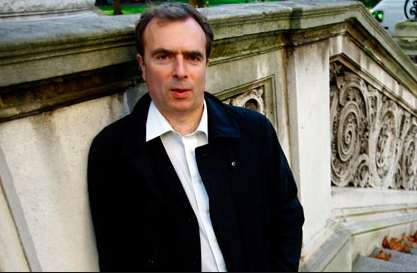Forty years ago, the French author, Jean Raspail, wrote a confronting novel about a third world invasion of Europe.
His chilling book, Le Camp des Saints (The Camp of the Saints), tells the story of a motley armada of clapped-out vessels transporting hundreds of thousands of people from the Ganges, via the African Cape, eventually landing in Southern France. Their journey presages the overturn of western civilization.
Dismissed as bizarre, far-fetched and racist by the political, media and academic elite that Raspail criticised, his novel was consigned to the dustbin of eccentric curiosities by the literary establishment.
How could Europe be invaded: we, with our superior technology and advanced way of life?
Fast-forward four decades and Europe has been invaded. By unarmed thousands, sailing by boat, and then trekking across borders. Raspail’s title could well describe the settlements that have sprung up across the continent.
The Camp of the Saints can be read as an allegory about Europe. Although the details differ, Raspail’s story sounds more like a parable now than the fictional tale by which it was dismissed.
Today the West is at war. The war has been declared many times: in New York, Madrid, London, Bali, and Paris, as well as in Sydney and Melbourne and numerous other places around the world. It is not a traditional war, but a war it is.
Some of the most ferocious and barbarous of the attacks have been on the home of liberté, égalité, fraternité.
This is a direct assault on the culture of the West – its character, its values and its beliefs.
Words of obfuscation and appeasement are hollow. Politicians who continue to mouth platitudes while appearing to wring their hands are unworthy of the trust placed in them.
Yet many of the European elite subscribe to a caricature of their civilization – a multicultural, borderless world, welcoming of everyone, for whom any residual problems can be treated by a sanctimonious dose of post-Christian kumbuya.
The answer in Brussels to any problem is to prescribe more rules, more regulation and more process. None of this has prevented the Belgian capital becoming the breeding ground of terrorism in Europe.
Meanwhile, the foundations of Europe are cracking.
The birthrate in much of Europe has fallen to dangerously low levels. Without immigration, countries like Italy, Spain and Portugal will see their population halve each generation.
These low levels are almost impossible to recover. They have a significantly adverse impact on economic growth. And they create a demographic vacuum that others will seek to fill.
Europe is even losing the willingness to acknowledge its own history and culture.
A decade ago, the European nations could not agree to the recognition of their Christian heritage in a proposed constitution.
Most European nations could not defend themselves without considerable assistance from others. Even the once mighty United Kingdom struggles to expend 2 per cent of GDP on defence.
Is it any wonder that the nation that produced Michel Foucault, Jacques Derrida and the other deconstructionists, for whom shared meaning is an anathema, is now in the firing line from sections of an immigrant population that has a clear and contrary ideology?
While the final coup de grâce of a civilisation is delivered by external forces, it is the internal corrosion that makes it possible.
Unless Europe recovers a belief in the foundations of its own culture, a preparedness to articulate it, and a willingness to defend it, militarily when necessary, it is doomed to a gradual but inevitable decline.
Je suis Charlie? Je suis mort.
Got something to add? Join the discussion and comment below.
Kevin Andrews is the federal member for Menzies and a former Defence Minister
You might disagree with half of it, but you’ll enjoy reading all of it. Try your first month for free, then just $2 a week for the remainder of your first year.









